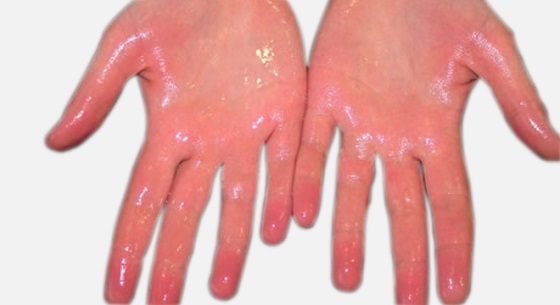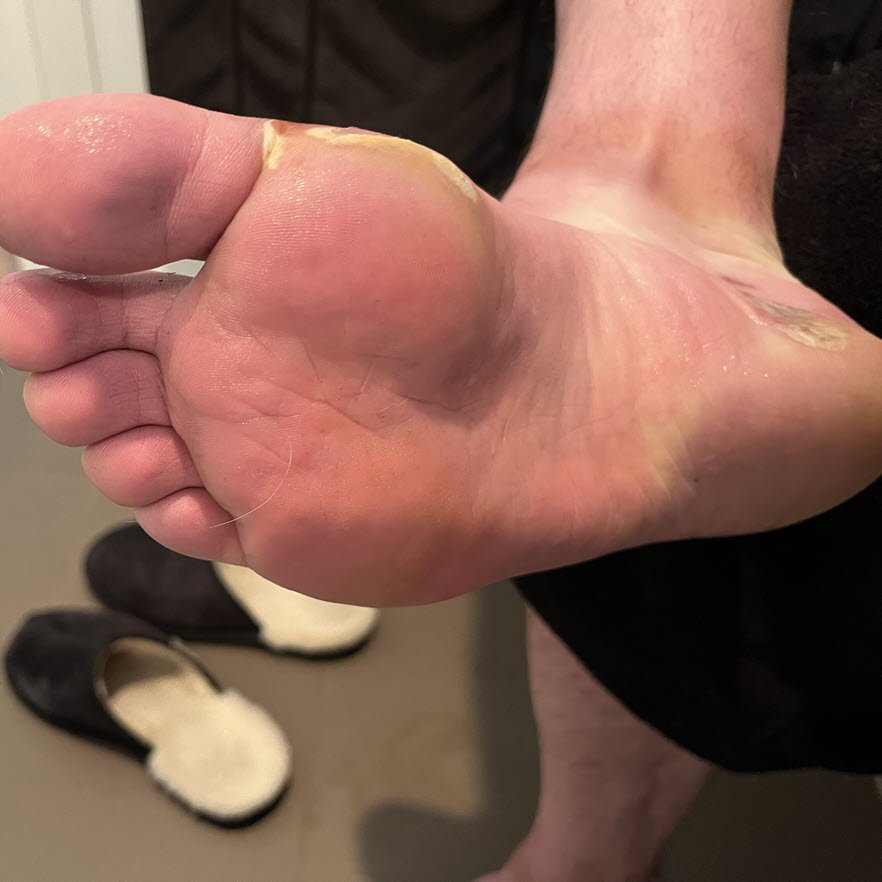How to Stop Sweaty Hands and Feet: Top Dermatology Treatments for Excessive Sweating
How to Stop Sweaty Hands and Feet: Top Dermatology Treatments for Excessive Sweating
Blog Article
Comprehending the Source of Excessive Sweating and Its Influence On Day-to-day Live
Excessive sweating, likewise recognized as hyperhidrosis, is a problem that affects a considerable section of the populace, yet its underlying causes and ramifications on day-to-day operating remain somewhat enigmatic. While it is frequently recognized as a physical response to regulate body temperature, the triggers for extreme sweating can differ commonly amongst people, incorporating not just physical factors but also emotional and mental aspects. Moreover, the influence of this problem expands past plain pain, usually affecting social communications and total lifestyle. By diving right into the origin of hyperhidrosis and exploring its diverse effects, a deeper understanding of this prevalent concern can be gotten, clarifying the complexities that individuals grappling with too much sweating browse each day.
Physiology of Sweat Glands
The policy of sweat production, a crucial physical process, is largely managed by the task of sweat glands dispersed across the body. Sweat glands are classified into 2 main kinds: eccrine and apocrine glands. Eccrine glands are the most countless and are found in virtually all areas of the body. They play an essential function in thermoregulation by producing a watery fluid onto the skin's surface area, which evaporates and assists cool down the body down. On the other hand, apocrine glands are concentrated in locations rich in hair roots, such as the underarms and groin, and their secretions are thicker and milky in look.
When the body temperature increases, either as a result of exercise, heats, or psychological stress and anxiety, the nerve system activates the gland to produce sweat. This sweat is composed largely of water and electrolytes like salt and chloride. The process of sweat production is necessary for keeping the body's internal temperature within a narrow, ideal array, highlighting the critical function sweat glands play in human physiology.
Triggers for Excessive Sweating
In recognizing the source of excessive sweating, it is important to determine the triggers that can bring about this physical feedback. Excessive sweating, also referred to as hyperhidrosis, can be prompted by different elements, both physical and ecological. One typical trigger is psychological anxiety or anxiousness, which can boost the body's gland to create even more sweat than is needed for cooling. Physical effort, heats, and spicy foods are likewise known to trigger excessive sweating in people vulnerable to this problem. In addition, particular clinical conditions like menopause, diabetes mellitus, or hyperthyroidism can add to extreme sweating too.
Furthermore, medicines such as some antidepressants, opioids, and particular supplements can also function as triggers for hyperhidrosis. Understanding these triggers is essential in handling excessive sweating effectively - Sweaty hands treatment. By identifying and addressing the certain triggers that prompt extreme sweating in an individual, doctor can create customized therapy plans to ease this condition and enhance the person's quality of life
Medical Issue Associated
Related to excessive sweating are numerous clinical conditions that can worsen this physiological feedback. One common condition is hyperhidrosis, a problem identified by abnormally boosted sweating that goes beyond the body's thermoregulatory needs. This can materialize in focal locations Clicking Here like the hands, soles, underarms, or face, impacting an individual's high quality of life as a result of social shame and discomfort.
Moreover, view publisher site endocrine conditions such as hyperthyroidism, diabetes, and menopausal hot flashes can additionally lead to extreme sweating. Hyperthyroidism causes an overproduction of thyroid hormonal agents, speeding up metabolism and triggering sweating.
In addition, infections like hiv, endocarditis, and consumption have been associated with evening sweats, a common signs and symptom understood to disrupt rest and impact total wellness. These medical problems highlight the diverse variety of underlying elements that can add to extreme sweating, necessitating detailed examination and management by medical care professionals.
Psychological and Psychological Variables

Effect On Social Communications
Excessive sweating can have extensive impacts on an individual's ability to engage pleasantly in social interactions. The noticeable signs of sweat stains or wet patches on clothing can bring about shame and self-consciousness, creating individuals to withdraw from social situations. This withdrawal can impact connections, restriction social activities, and impede professional and individual growth.

In addition, the stress and anxiety and self-confidence concerns stemming from too much sweating can affect communication and interpersonal abilities. People may have a hard time to concentrate on discussions, participate in group activities, or reveal themselves with confidence. This can lead to feelings of seclusion and loneliness, as social connections become challenging to maintain.
Conclusion
:max_bytes(150000):strip_icc()/sweaty-palms-palmar-hyperhidrosis-4691320-10512b2d428846059753b76df6dc74c2.png)
While it is generally recognized as a physiological reaction to regulate body temperature level, the triggers for too much sweating can differ commonly among people, incorporating not only physical factors but additionally psychological and psychological elements. By diving right into the root creates of hyperhidrosis and discovering its diverse effects, a much deeper understanding of this pervasive concern can be gotten, dropping light on the complexities that people grappling with excessive sweating browse on an everyday basis.
Physical exertion, high temperature levels, and spicy foods are likewise known to cause extreme sweating in people susceptible to this condition. By determining and dealing with the details triggers that trigger excessive sweating in a private, healthcare carriers can establish personalized therapy plans to ease this condition and enhance the person's high quality of life.
Too much sweating can have profound results on an individual's capacity to engage easily in social interactions.
Report this page